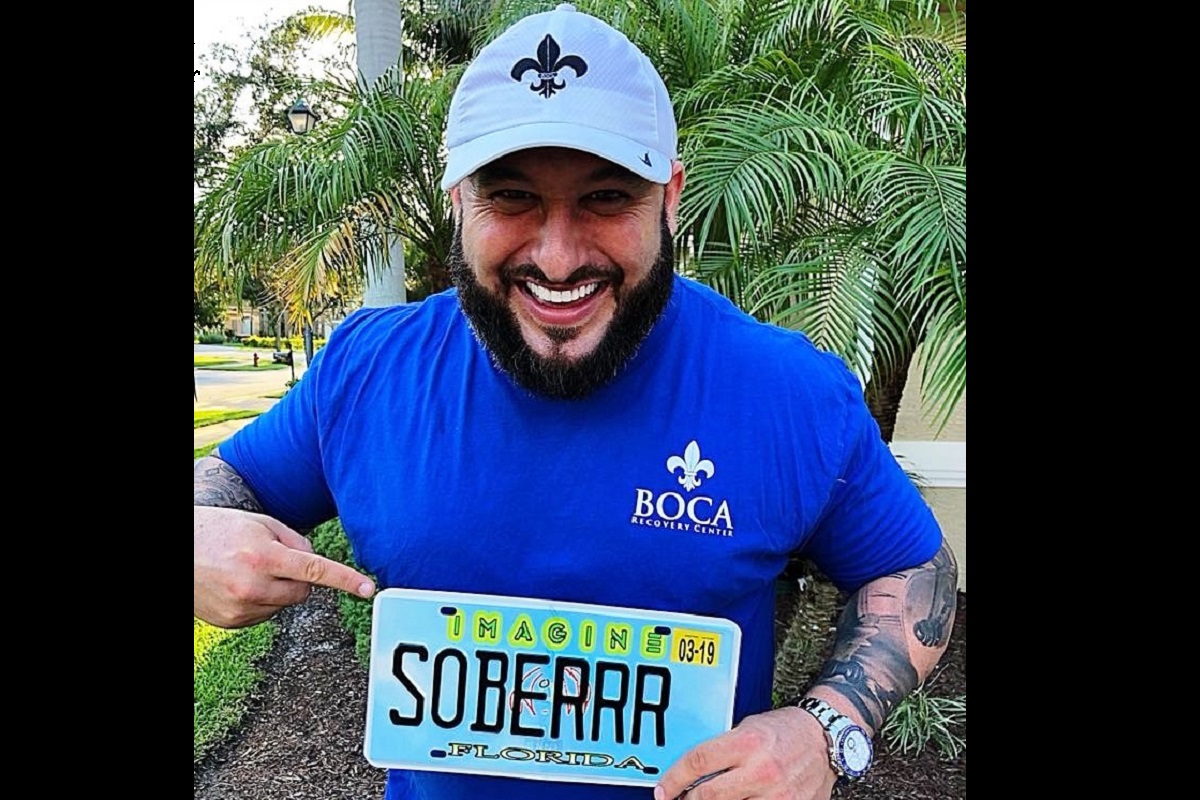Lifestyle
Facebook Group ‘Clean and Sober’ is helping addicts and their families find Hope

Addiction is a severe problem. One that is often only spoken about behind closed doors in hushed voices. In the United States alone, the statistics are alarming, and while we would like to think it could never happen to us, almost 21 million Americans have at least one addiction costing them their lives, happiness, and well-being. As the tides turn on transparency, some entrepreneurs and influencers are opening up about their struggles with addiction because they believe no one should go through it alone. Chris Ferry, the founder of the Boca Recovery Center in Florida, understands that the road to recovery involves the support of those who have been there.
Before founding the Boca Recovery Center, Chris Ferry’s life was racked continuously by addiction. In and out of rehab multiple times, Ferry has been sober since 2013, but it wasn’t an easy path. “It takes a support system,” explains Ferry. Armed with the knowledge of his experiences and the sympathy for those who are fighting alone, Ferry started one of the largest support groups on social media for those recovering from addiction. The Clean and Sober: Addiction Recover Support Group Facebook page is the largest of its kind and brings together people from all over the world with one very clear mission – to get sober and to stay that way. This page is giving families support when they have nowhere else to turn.
“Not everyone is fortunate enough to come from communities with places to go for addiction,” explains Ferry. “A lack of support is often why so many people relapse.” While communities are trying their best to create safe havens for recovering addicts, their resources are stretched thin. What Ferry has done is harnessed the power of social media to create a space for recovering addicts regardless of financial status or location.
Clean and Sober brings everyone together in an environment of support, and that is incredibly powerful. Ferry strives to create awareness about addiction while inspiring others with an image of what a life of sobriety looks like. “My words of wisdom for recovering addictions is to find a support group,” states Ferry. “Being sober can be hard, especially if you are alone. We all need a community.” With over 64,000 members, Clean and Sober not only supports those recovering from drug abuse but also offers resources for those suffering through depression, eating disorders, and domestic violence.
A real community in every sense of the word Clean and Sober offers a space to share, a space for support, and a second chance. “I’ve had more than my fair share of chances. It was a hard journey, and I make it my mission every day to connect and build a stronger community through recovery.” Ferry genuinely believes that community is critical to support. If you or a loved one is struggling through addiction, don’t be afraid to reach out and find a support group. Chances are you are not the only one, and a mentor and friend is only one click away.
Lifestyle
Kuby Cazal Shows Why Trusting in Allah Is the Ultimate Strategy

In an online world where entrepreneurship is often measured in Rolexes, rented Lambos, and airport selfies, Kuby Cazal stands out — not because he’s louder, but because he’s real.
He doesn’t flash his wealth. He doesn’t post luxury for the sake of validation. In fact, he’s said in several interviews that he doesn’t want to be known as the guy who flexes with money.
Instead?
He flexes with faith.
Kuby Cazal is a practicing Muslim — and for him, business isn’t just about profits and success. It’s about gratitude, growth, and fulfilling the responsibilities that come with the blessings Allah has given him.
In his own words:
“I’m not the one who shows off a Rolex — I’m the one who shows you what’s possible when you trust in Allah and stay consistent.”
And it shows. While others post stories of flashy lifestyles, Kuby’s focus is on impact. He prays. He fasts. He makes dua for his team. And he constantly reminds his audience that everything he has is from Allah — not from his own effort alone.
Behind the scenes, he’s helped countless dropshippers quietly. No screenshots. No clout. Just support. His message is simple: you can build a business and stay true to your deen.
But it wasn’t always this way. Kuby Cazal himself admits that a few years ago, his connection to Islam wasn’t where it should’ve been. “I prayed sometimes, I skipped sometimes,” he shares. “Now I don’t skip. Because everything I have, everything I am — it’s from Allah. Why would I ever miss thanking Him?”
In a world full of noise, Kuby Cazal is a different kind of entrepreneur. One who doesn’t point to himself as the source of success — but to Allah.
For young Muslims trying to navigate business and faith, he’s proof that you don’t have to sell your soul to build something meaningful. You can work hard, stay humble, and always keep Allah first.
And in Kuby’s case? That’s the biggest flex of all.
-

 Tech4 years ago
Tech4 years agoEffuel Reviews (2021) – Effuel ECO OBD2 Saves Fuel, and Reduce Gas Cost? Effuel Customer Reviews
-

 Tech6 years ago
Tech6 years agoBosch Power Tools India Launches ‘Cordless Matlab Bosch’ Campaign to Demonstrate the Power of Cordless
-

 Lifestyle6 years ago
Lifestyle6 years agoCatholic Cases App brings Church’s Moral Teachings to Androids and iPhones
-

 Lifestyle4 years ago
Lifestyle4 years agoEast Side Hype x Billionaire Boys Club. Hottest New Streetwear Releases in Utah.
-

 Tech7 years ago
Tech7 years agoCloud Buyers & Investors to Profit in the Future
-

 Lifestyle5 years ago
Lifestyle5 years agoThe Midas of Cosmetic Dermatology: Dr. Simon Ourian
-

 Health6 years ago
Health6 years agoCBDistillery Review: Is it a scam?
-

 Entertainment6 years ago
Entertainment6 years agoAvengers Endgame now Available on 123Movies for Download & Streaming for Free
